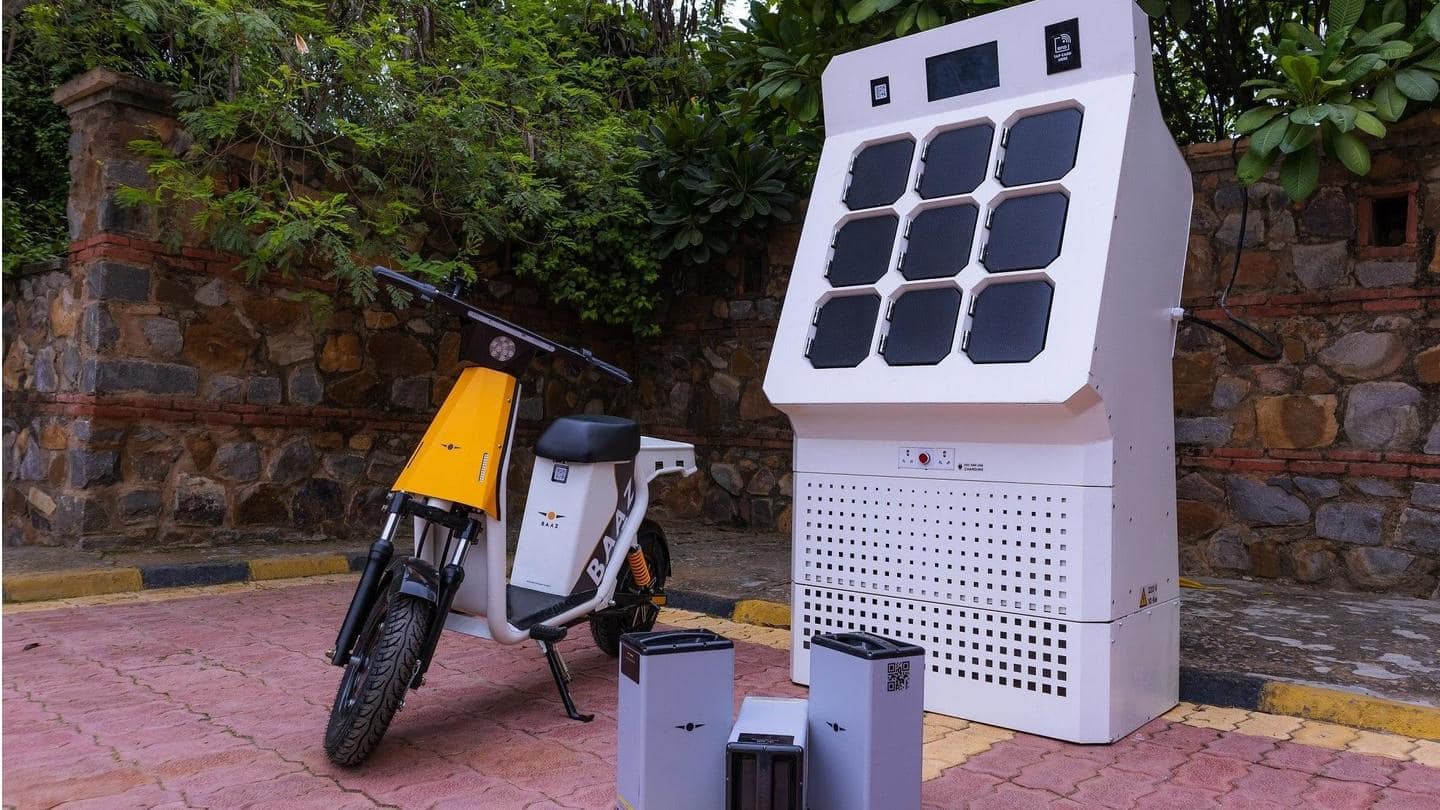
Baaz Bikes announces all-new electric scooter for last-mile deliveries
What's the story
Delhi-based startup Baaz Bikes (formerly known as ElecTorq Technologies) has launched an all-new electric scooter along with an entire EV ecosystem primarily to cater the last-mile mobility needs.
The scooter, along with the battery-swapping network and fleet management tools, have been developed in-house by the company.
The compact two-wheeler carries a price tag of Rs. 35,000 (ex-showroom) without the battery.
Context
Why does this story matter?
Founded by the alumni of IIT Delhi, Baaz Bikes aims to provide green micro-mobility solutions for multiple platforms like Zomato, Grofers, and Amazon for their last-mile delivery requirements.
The brand has an entire ecosystem, which includes scooters, battery packs, a swappable battery network, and fleet management tools designed to support and empower small-scale entrepreneurs.
The company currently operates only in New Delhi.
About the scooter
The scooter has a rider-only saddle and removable battery pack
The Baaz electric scooter has a rather uninspiring design, featuring a circular LED headlight, a wide handlebar, a rider-only saddle, and a small luggage rack.
There is a bright yellow paintwork on the front and white finish on the rear side along with 'BAAZ' lettering.
The EV also gets an upside-down fork on the front and twin-spring shock absorber on the rear side.
Other details
No registration is needed for the e-scooter
While the complete specifications of the Bazz electric scooter are yet to be revealed, the company has claimed that the e-scooter has a top speed of 25km/h and need not be registered.
The IP65-rated battery can be swapped at a Baaz battery station in just 90 seconds and each battery pack has a life cycle of about 2,000 charges.
Current plans
The company plans to expand its network in Delhi
"At present, we are operating with a cluster approach, where we launch our vehicles within a radius of 4-5km in Delhi," said Anubhav Sharma, Chief Executive Officer, Baaz Bikes.
"In the next 8 months, we aim to replicate this model in multiple clusters to achieve density and blanket the entire Delhi with the Baaz Ecosystem, maintaining the high utilization of the network."